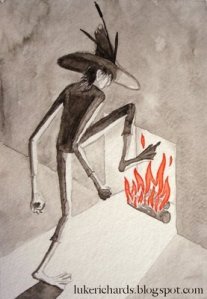Our guest blog this week, part of our From The Writers’ Tool Chest resources, is an article by soon-to-be published YA fantasy author Jillian Boehme. Her first published novel, Stormrise, will come out with Tor Teen in September.
^^^^^^^^^^^^^^^^
Once upon a time, I swore I couldnât write novels.
Itâs funny, isnât it, the stories we tell ourselves? I self-published a non-fiction book in 2002—a collection of anecdotal stories about stay-at-home motherhood—and was convinced I was an essayist and nothing more. (Not that thereâs anything wrong with being an essayist. It just . . . wasnât really me.)
Then one day I read a childrenâs novel and absolutely hated it—and had the notion that I could, perhaps, do better. Fiction was, after all, my go-to for reading pleasure. Especially fantasy.
So I wrote a YA fantasy novel, and oh, what a glorious mess it was. I didnât realize it was a mess, though, and I gleefully passed chapter after chapter to my two oldest children, who devoured it and created fan art and GIFS and wrote letters to my characters. Just the fuel a write-at-home mom needs to keep the literary fire burning, yes?
I wasnât just writing, though; I was researching the publishing industry. At the time, electronic submissions were new, and not many agents accepted them. My first stack of rejection letters was comprised of honest-to-goodness paper and envelopes. (I keep them in my bedside drawer tied with a red ribbon.)
I wrote a second novel. And a third. In 2008, I started Miss Snarkâs First Victim, a blog for aspiring authors. It was a wonderful way to connect with the vibrant community of writers online, offering them encouragement and advice while continuing to press forward with my own journey. The in-house critique sessions and Secret Agent Contests (with a âsecretâ guest agent critiquing each entry and offering requests to the winners) created an environment in which participants were not only growing as writers, but also were landing agents—and eventually book deals.
Imagine the headiness of watching other peopleâs success unfolding as a result of the blog! And imagine the sense, as the months and years continued to pass, of being left behind, as my colleagues went on to publish their debut novels while I continued to despair of ever landing an agent.
Sometimes I cried. Sometimes I declared that I was giving up (my husband never let me get away with that one). But always I kept going. Kept writing. Kept dreaming.
After five (long) years, I finally signed with an agent, who had fallen in love with my YA science fiction novel and was eager to sell it.
He didnât. We submitted a different novel. That one didnât sell, either. Neither did the third. As time wore on, friends and colleagues started to counsel me to leave him. âThe wrong agent is worse than no agent at all,â they would say. âHeâs not selling you; move on.â
I really loved this guy, though. And every time I asked God if I should leave my agent and find a new one, the answer in my deepest heart was âno.â
So I stayed.
Midway through my time with him, my agent hired an assistant who became involved with the editing process of my novels. I loved her immediately! She was bright and talented and very soon began to take on clients of her own. By this time, I was on my fourth novel-on-submission (which also didnât sell). My new manuscript was a YA fantasy, and I was concerned that my agent wouldnât be a good fit for it—he didnât represent fantasy.
His assistant, however, did. And so I asked him, over a sushi lunch in New York City, if perhaps Danielle could take over my next project. He gave me an enthusiastic yes, and several months later, with a completed draft in hand, my relationship with Danielle was formalized.
Five years and four unsold novels later, I was ready for a fresh start. My season of waiting wasnât over, though; the YA fantasy didnât sell, either, bringing my unsold total to five.
Not a very impressive track record. And an interesting thing happened at this point: I stopped dreaming.
I didnât stop writing. I didnât stop doing everything I needed to do to make sure my next novel was the best it could be. But the wild-hearted hope for a book sale—and a future as a published author—had died. Instead, I plugged on with the doggedness of someone who keeps going because thereâs nothing else to do. Quitting was never an option.
Never.
And the novel I wrote without dreaming was the one that sold. Danielle cried more than I did during the big phone call; I think I was too stunned to feel the moment.
Twelve years. Two agents. Five unsold novels.
Honestly? I wouldnât trade my journey for anything. Over the lifetime of my blog (which I still run), many of my readers were encouraged to keep writing—to never give up—because I kept writing and never gave up. And, letâs be honest—itâs harder to walk away from something when people are watching you, cheering you on, waiting to celebrate your success with you.
Iâm thankful for who I am because of this (long!) journey; Iâm thankful that I can look other writers in the eye and say, âIf I could keep writing for twelve years, you can keep writing for another day.â Because it was always one day at a time, one paragraph at a time, one story at a time.
Now? Iâm living my dream—the one that had to die so I could be about the business of writing without emotional encumbrance. Though, really, I suppose it never actually died. Just went to sleep for a while.
Is your dream sleeping? Give it a gentle poke. Your gifts, no matter what they are, were planted in you for a purpose. Making the decision not to give up will be so worth it.
I promise.
^^^^^^^^^^^^^^^^
Author Bio

Jillian Boehme, AKA Authoress, proprietor of the writers’ blog, Miss Snark’s First Victim
JILLIAN BOEHME is known to the online writing community as Authoress, hostess of Miss Snark’s First Victim, a blog for aspiring authors. In real life, she holds a degree in Music Education, sings with the Nashville Symphony Chorus, and homeschools her remaining youngster-at-home. She’s still crazy in love with her husband of more than thirty years and is happy to be surrounded by family and friends amid the rolling knolls of Middle Tennessee.
You may find her online in these places:
Author web site: www.jillianboehme.com
Twitter: @Jillian Boehme
Facebook: https://www.facebook.com/JillianBoehmeAuthor/
Instagram: https://www.instagram.com/jillian.boehme/
Goodreads: https://www.goodreads.com/author/show/7234281.Jillian_Boehme
Miss Snarks’s First Victim: www.misssnarksfirstvictim.blogspot.com
Stormrise Blurb
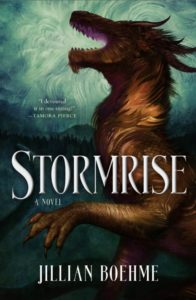 A combat warrior will risk everything to awaken the dragons and save her kingdom in Jillian Boehme’s epic YA Fantasy debut, Stormrise, inspired by Twelfth Night and perfect for fans of Tamora Pierce.
A combat warrior will risk everything to awaken the dragons and save her kingdom in Jillian Boehme’s epic YA Fantasy debut, Stormrise, inspired by Twelfth Night and perfect for fans of Tamora Pierce.
If Rain werenât a girl, she would be respected as a Neshu combat master. Instead, her gender dooms her to a colorless future. When an army of nomads invades her kingdom, and a draft forces every household to send one man to fight, Rain takes her chance to seize the life she wants.
Knowing sheâll be killed if sheâs discovered, Rain purchases powder made from dragon magic that enables her to disguise herself as a boy. Then she hurries to the war camps, where she excels in her trainingâand wrestles with the voice that has taken shape inside her head. The voice of a dragon she never truly believed existed.
As war looms and Rain is enlisted into an elite, secret unit tasked with rescuing the High King, she begins to realize this dragon tincture may hold the key to her kingdomâs victory. For the dragons that once guarded her land have slumbered for centuries . . . and someone must awaken them to fight once more.
 inside you, inside all of us, around us, in the love or legacy or memory she left behind. The dead are anywhere but gone. Our culture, as manifested in popular books and movies, does not look to the blazing dawn of the first Easter, but usually it is equally unwilling to look at the cold finality and ultimate aloneness of the body in the tomb. What we end with is a popular culture that will face neither the darkness nor the light.
inside you, inside all of us, around us, in the love or legacy or memory she left behind. The dead are anywhere but gone. Our culture, as manifested in popular books and movies, does not look to the blazing dawn of the first Easter, but usually it is equally unwilling to look at the cold finality and ultimate aloneness of the body in the tomb. What we end with is a popular culture that will face neither the darkness nor the light.





































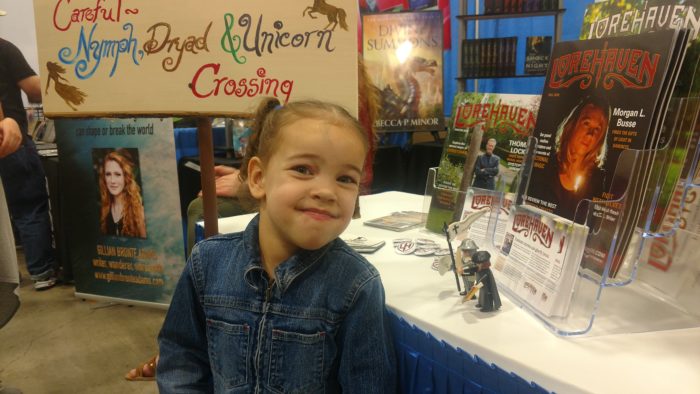

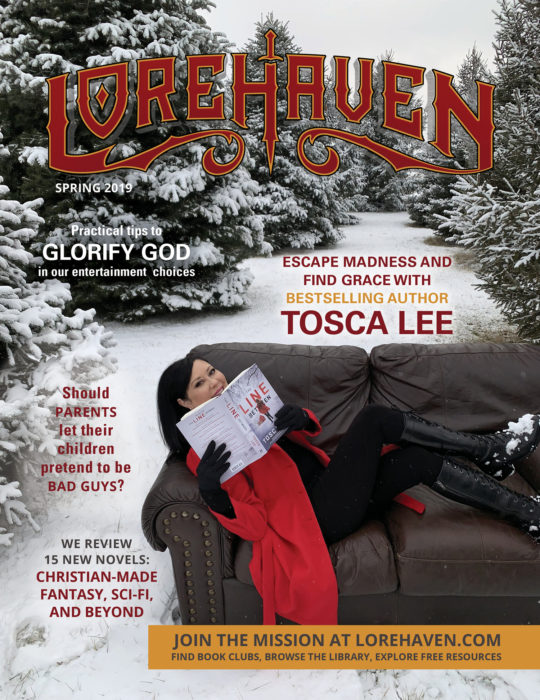
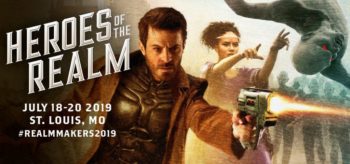 Next,
Next, 

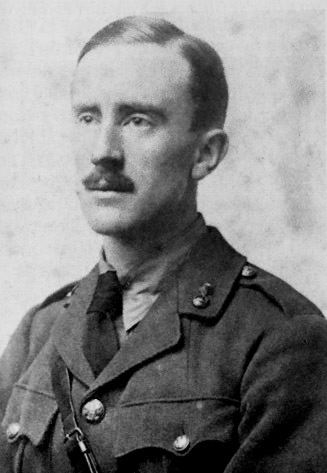 On top of this obvious appeal, there’s also the emergence of another popular genre—the “story behind” story, usually dealing with the creator of an imaginary piece of literature rather than with the story itself. So we’ve had movies such as Finding Neverland, the story about the playwright J. M. Barrie who created Peter Pan, and Goodbye Christopher Robin, the story of A. A. Milne and his creation of Winnie the Pooh. Or how about The Man Who Invented Christmas, about Charles Dickens and his creation of A Christmas Carol.
On top of this obvious appeal, there’s also the emergence of another popular genre—the “story behind” story, usually dealing with the creator of an imaginary piece of literature rather than with the story itself. So we’ve had movies such as Finding Neverland, the story about the playwright J. M. Barrie who created Peter Pan, and Goodbye Christopher Robin, the story of A. A. Milne and his creation of Winnie the Pooh. Or how about The Man Who Invented Christmas, about Charles Dickens and his creation of A Christmas Carol. Does “a lot to work with” translate into a good movie? I wonder. I don’t think there are the clear lines of connection with Tolkien’s life and the world he created, that there have been in the previous biographical films. Did this place inspire the idea of that imaginary story location? Were these people the reason Tolkien created those villains or that heroine?
Does “a lot to work with” translate into a good movie? I wonder. I don’t think there are the clear lines of connection with Tolkien’s life and the world he created, that there have been in the previous biographical films. Did this place inspire the idea of that imaginary story location? Were these people the reason Tolkien created those villains or that heroine?







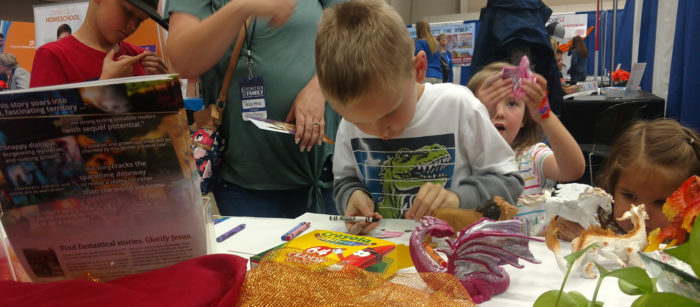
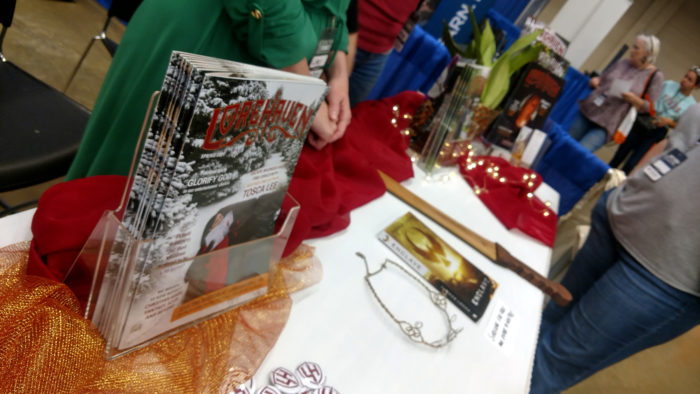
 Fantastic Christian fans to remember
Fantastic Christian fans to remember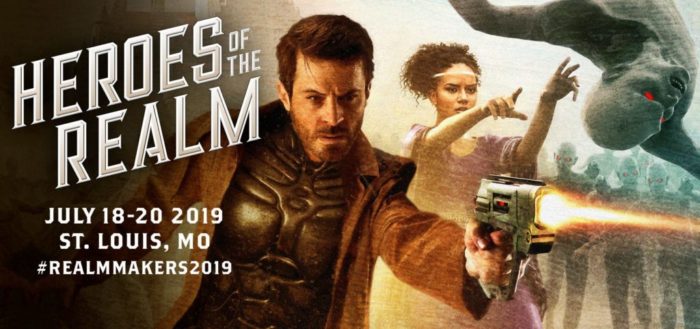

 I can’t help but wonder, though, if the “magic” of bringing a character back isn’t in many ways the same magic of spring: the plant dies in the winter, only to come back in newness of life the following spring.
I can’t help but wonder, though, if the “magic” of bringing a character back isn’t in many ways the same magic of spring: the plant dies in the winter, only to come back in newness of life the following spring. Clearly sacrifice and death are tied together when it comes to what Christ did for us, but perhaps in fiction the whole story doesn’t have to be represented. Perhaps an aspect—a sacrifice that isn’t a death—can still point to Christ.
Clearly sacrifice and death are tied together when it comes to what Christ did for us, but perhaps in fiction the whole story doesn’t have to be represented. Perhaps an aspect—a sacrifice that isn’t a death—can still point to Christ.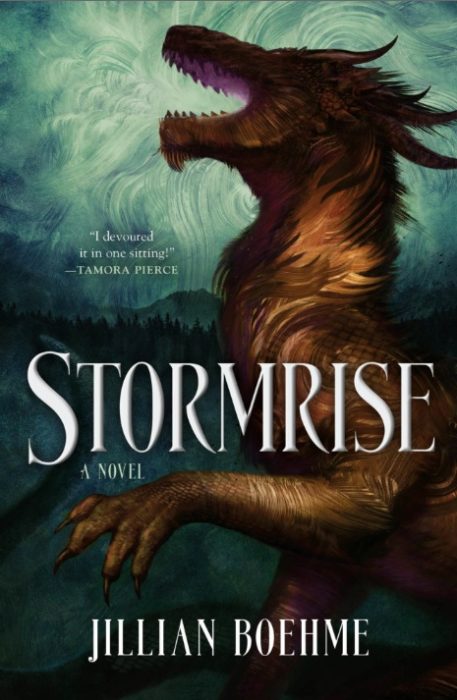

 A combat warrior will risk everything to awaken the dragons and save her kingdom in Jillian Boehme’s epic YA Fantasy debut, Stormrise, inspired by Twelfth Night and perfect for fans of Tamora Pierce.
A combat warrior will risk everything to awaken the dragons and save her kingdom in Jillian Boehme’s epic YA Fantasy debut, Stormrise, inspired by Twelfth Night and perfect for fans of Tamora Pierce.


